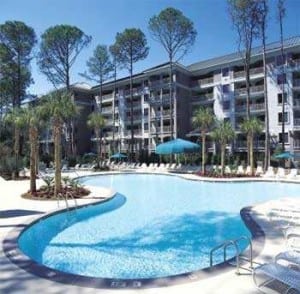Being one of the premier timeshare ownership clubs available, Marriott Vacation Club has some distinctive features that many may not be aware of prior to attempting to purchase, so it is important to go over the essential terms you will encounter when buying Marriott ownership. Within the article you will find some of the most frequently used terms to help you understand everything you need to know about your new Marriott timeshare.
Marriott Vacation Club’s Most Common Keywords
Destination Club
Destination Club, or DC, refers to the Marriott ownership club which allows the use of points as opposed to weeks. DC points are the club currency used to book properties and request trades and are a common booking tool within Marriott Vacation Club.
Since Destination Club is a points-based system, it allows a large amount of booking flexibility when booking your week. When reviewing various points charts, they will detail how many points are necessary to book at a specific resort during a specific week.
Beneficial Interests
Beneficial Interests refer to a block of Trust points within the Marriott Vacation Club network. For each block of 250 Trust points, this is referred to as one Beneficial Interest. For instance, if you have 2,500 Trust points, you own ten Beneficial Interests. At times during your timeshare purchase, you will be provided with Beneficial Interests as opposed to individual Trust points. The amount of Beneficial Interests you are allotted will correlate directly with the amount of points that you can use to book as well as your annual maintenance fees.
Legacy Weeks
A Legacy Week refers to a deeded timeshare ownership through Marriott Vacation Club. Potential owners are able to purchase a deeded ownership by buying into a resale property that was sold prior to June 20, 2010, and owners who purchased their properties prior to that date can opt out of converting to Destination Club points. Legacy Weeks fall within the exact same time-frame every year and always retain the same resort and season, so this can be a beneficial option for those preferring consistency with their vacation booking. For other owners, who may choose to be a bit more sporadic with their annual vacation times, floating weeks may be more conducive to their travel habits.
Deeded Property
A deeded property refers to ownership that is physically deeded to the owner, as opposed to providing a club membership. The majority of current timeshares do not operate as deeded property and instead work through various ownership clubs. With having a deed, there is no discernable benefit, however there are some distinct differences when attempting to transfer over a timeshare. The deed will both need to be rewritten and then submitted to the county for review. This is where closing companies will come into play, as they can streamline the process for both parties.
Interval International
This refers to Interval International, one of the largest trading companies in the timeshare industry. Interval International allows trades to any of their near 2,800 resorts spanning across over 75 countries. II is currently the second largest timeshare exchange company, and although their trading network isn’t the largest, it’s been said that II has some very high-end trading inventory from other name-brand timeshares such as WorldMark by Wyndham, Monarch Grand Vacations, and Westin to name just a few.
Season
A season is a block of time, made up of various week numbers, that organizes each week of the year into categories ranging from very desirable to not very desirable. This helps owners understand how “expensive” it will be to travel to a particular resort during a particular time of the year. If you’re using points, the season will determine how many points it will take to travel to that resort. If you are performing a trade, you can generally only trade with inventory that carries the same rating as your ownership, or below.
Interval International uses a separate system for deciding the value of each unit size, which is based on a standard 7-night stay. Below you can find Interval International’s Travel Demand Index, or TDI, which will show exactly how many points it will cost you for each trading scenario.
With these keyword terminology definitions at your disposal, booking or trading for those hard-to-get vacations with your Marriott timeshare should be a simple process in the future. If you have any additional questions about Marriott terms and features, feel free to contact us.









